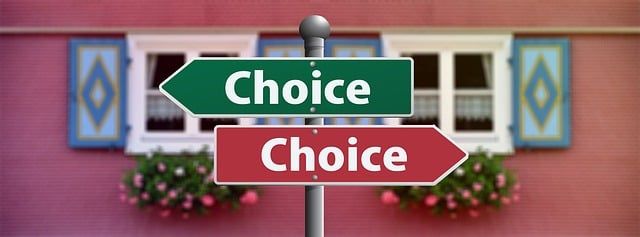This world is a big and complex place.
And our freedom of choice in this ever-populating, capitalism-centric environment with all the fancy, shiny products is making us miserable.
Yes, our purchases, or at least the way we make them is running our lives, says psychologist Barry Schwartz in his famous Ted Talk, the Paradox Of Choice.
But is it?
Is having a choice really that bad?
And what does the paradox of choice mean from an entrepreneur’s standpoint — where Information Technology has enabled them to carry out wonderful business model + ideas which were previously considered unfeasible?
Let’s find out.

Understanding Barry’s Argument — The Paradox Of Choice
The Paradox of Choice (or POC, as we’d call it) is a situation where we, as customers, are unable to choose from the mammoth list of presented options, even though our human nature fancies to have options at our disposal.
Ergo, according to the Paradox of choice or the choice paradox, the more options we have, the more likely are to get confused, and eventually make a choice which leaves us unsatisfied — and longing for a better alternative.
With the advent of numerous suppliers (brands, companies, capitalists) offering the similar products, or a particular products with multiple variations — POC has become a lot more frequent in our lives.
I bet you might have experienced that too, while shopping for clothes, gadgets, watches and literally everything else. Unlike 20-30 years back, today the choices are truly unlimited.
The Problem With Too Many Choices
The paradox of choice primarily explains that consumers experience great stress over every choice they can make — known as decision-fatigue.
One example of where this stress arises is that people often start to rethink the trade-offs associated with this decision in terms of missed opportunities.
“Will this xPhone will give me the experience I am looking for — they say the yPhone offers similar features but at a cheaper price, but the build quality is not that premium"
This modification will affect the degree of satisfaction we will experience in the decisions we make. From our perspective, the brain focuses on what we don't have, not what we have, or what we could have.
These choices can make even the simplest decisions such as buying milk into a daunting task. I mean you walk into a grocery store to buy milk and the daily aisle bombards you with dozens of options — 1%, 2%, skimmed, oats, almost, cashew, soya and the list goes on.
It’s could be exhausting — if you don’t know what you’re looking for.
But if you are, then maybe you could use some choices. Right?
What Does It Mean For Your Business?
You see, the paradox of choice is a controversial topic — with different people having different opinions, and psychologies.
Some prefer a variety of options, others prefer a limited range of products.
Some make purchases intentionally, other make them impulsively.
Some go to shop, while others shop as they go.
It all boils down to who is your target audience.
Let me simplify this.
Suppose you are a product company with a very specific niche audience, such as Apple. In that case. giving your audience too many options in that case is not a wise decision as it can cannibalize your own sales.
Whereas, if you are brand without a segmented, niche audience, such as an online clothing like Myntra — giving your customers a number of choices could work in your favour.
The Final Verdict
Having options — it’s a complicated scenario.
Perhaps that is why it is known as the ‘paradox of choice’ because it leaves you wondering, how much of it is enough.
As an entrepreneur or a marketer, you need to understand that — you got to give your customers enough options to meet their diverse needs, but enough to overwhelm them. You need to find — the sweet spot.
The goal is to make them feel free, and not paralysed.

